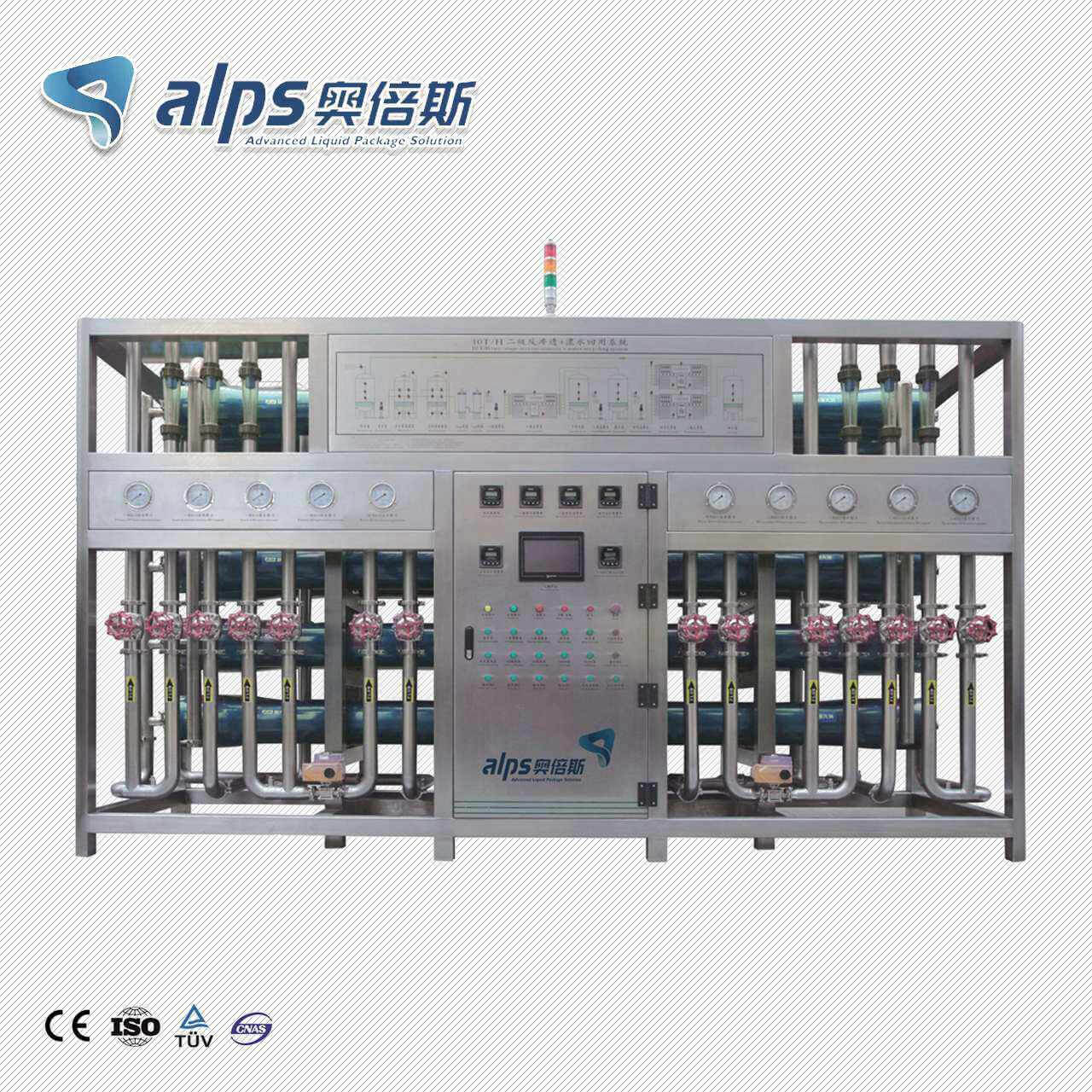Advanced Liquid Package Solution
In today’s world, bottled water has become a staple of modern life, offering convenience and a reliable source of hydration. However, consumers often face the choice between two main types: natural water and purified water. Each type has its unique characteristics, benefits, and production processes. Central to the safety and quality of both is the role of advanced water treatment systems. This article explores the distinctions between natural and purified water, emphasizing the critical role of treatment systems in their production.
Natural water originates from sources such as springs, wells, or aquifers, where it is naturally enriched with minerals and trace elements. This type of water is prized for its minimal processing and its ability to retain the unique properties imparted by its source. Natural water is typically filtered to remove debris and microorganisms and disinfected using methods such as UV treatment or ozonation. These processes ensure the water is safe to drink while preserving its natural composition, which includes essential minerals like calcium, magnesium, and potassium.
Purified water, in contrast, undergoes extensive treatment to remove impurities and contaminants. This water is sourced from municipal supplies or other treated water systems and processed to achieve a high level of purity. Techniques like reverse osmosis, distillation, or deionization are employed to remove minerals, chemicals, and microorganisms. The result is water that is virtually free of impurities, offering a clean and neutral taste. Purified water is often used in contexts where consistent quality and high purity are essential, such as in laboratories, medical applications, or certain manufacturing processes.
Natural and purified water differ in several key aspects, including their source, mineral content, taste, and processing methods.
Source: Natural water is drawn from the environment, often directly from protected natural springs. Purified water, on the other hand, typically begins as municipal water or other treated sources, which is then further refined through extensive processes.
Mineral Content: Natural water retains its naturally occurring minerals, which contribute to its taste and potential health benefits. Purified water, however, removes these minerals during the purification process. In some cases, essential minerals may be reintroduced artificially.
Taste: The distinct taste of natural water is influenced by its mineral content and source. Purified water has a clean, neutral taste, making it ideal for those who prefer a more subtle flavor profile.
Processing: Natural water undergoes minimal treatment to preserve its original properties. Purified water involves rigorous processes like reverse osmosis and deionization to achieve ultra-purity.
Water treatment systems play a pivotal role in ensuring the safety, quality, and consistency of both natural and purified water. These systems are tailored to meet the specific requirements of each type, using advanced technology to produce bottled water that adheres to strict regulatory standards.
1. Ensuring Safety: Both natural and purified water require treatment to eliminate harmful pathogens, bacteria, and impurities. For natural water, filtration and disinfection are essential to maintaining its natural properties while ensuring it is safe to drink. For purified water, rigorous processes remove virtually all impurities, including microorganisms, heavy metals, and dissolved solids.
2. Technology Used: Advanced technologies such as reverse osmosis, UV disinfection, ozonation, and activated carbon filtration are central to the treatment process. While natural water treatment focuses on preserving the water’s inherent qualities, purified water treatment prioritizes achieving the highest levels of purity.
3. Compliance: Water treatment systems are designed to ensure that bottled water meets or exceeds regulatory standards for safety and quality. This compliance is essential for consumer trust and the sustainability of water production operations.
4. Customization: Treatment systems are often customized based on the desired end product. For natural water, the focus may be on retaining beneficial minerals, while purified water production emphasizes removing contaminants to create a consistent product.

Both natural and purified water offer unique advantages and drawbacks, making them suitable for different preferences and applications.
Natural Water:
Advantages: Retains natural minerals, which may offer health benefits. Its eco-friendly sourcing contributes to its appeal.
Disadvantages: Variability in quality and composition depending on the source. Limited availability in some regions.
Purified Water:
Advantages: Consistent quality and absence of impurities make it ideal for sensitive applications.
Disadvantages: Loss of natural minerals and the resource-intensive nature of purification processes.
When choosing between natural and purified water, consumers should consider their health needs, taste preferences, and environmental impact. Natural water is an excellent choice for those seeking the benefits of minerals and a distinct flavor profile. Purified water, with its consistency and purity, is ideal for individuals who prioritize cleanliness and uniformity.
Environmental considerations are also important. While natural water’s sourcing can be eco-friendly, purified water production often involves energy-intensive processes. Consumers and manufacturers alike must weigh these factors when making their choices.

Natural water and purified water each offer unique qualities that cater to different needs and preferences. Central to the production of both types is the indispensable role of water treatment systems, which ensure that the water we consume is safe, high-quality, and aligned with regulatory standards.
ALPS Machine offers the ultimate solution for clean and safe drinking water. As a leading manufacturer in water treatment systems, we specialize in filtering and purifying water from various sources, including well water, deep well water, seawater, medical water, salt water, and brackish water. We tailor our water filtration technology to each customer's unique water source and water quality report.
Our advanced equipment utilizes PLC automatic control systems, international brand filter membranes, and online water quality monitors to ensure the most advanced, economical, and effective systems. Our meticulously designed systems not only meet national drinking water quality standards but also exceed the rigorous guidelines set by the World Health Organization.
Whether you prefer the mineral-rich taste of natural water or the pristine purity of purified water, understanding their differences and the processes involved can help you make an informed choice. As we continue to advance water treatment technologies, the future promises even greater innovation and sustainability in the bottled water industry.

By continuing to use the site you agree to our privacy policy Terms and Conditions.